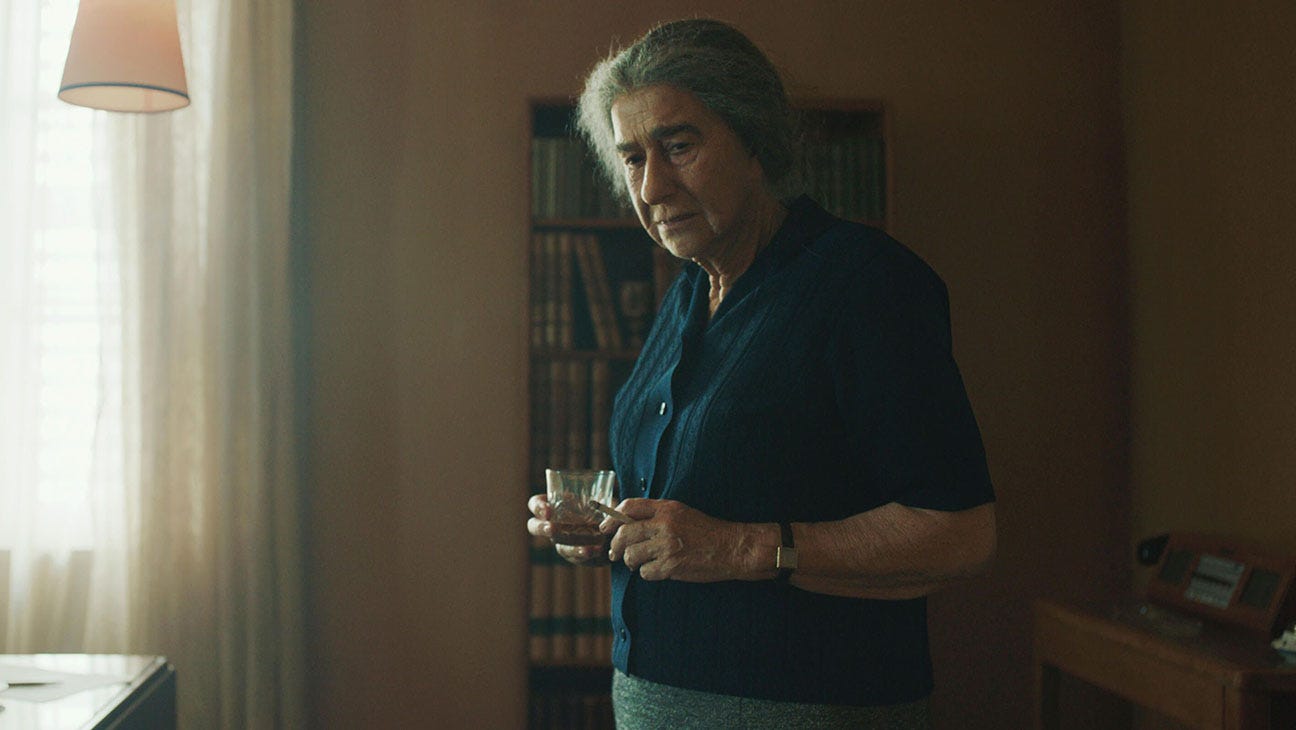Golda
Another masterful performance from Helen Mirren, playing the Israeli prime minster during the darkest days of the Yom Kippur War of 1973.
“Golda” is, beyond a showcase for Helen Mirren’s tremendous thespian skills, an examination of the nature of leadership.
What makes for a good leader? Can very different styles be effective, or is one indisputably best? Was Golda Meier a good prime minister, leading Israeli through the Yom Kippur War of 1973 in which the beleaguered Jewish state was nearly wiped from the map by its Arab enemies?
Many think not, arguing she allowed Israel to be caught by a surprise attack, though a commission of inquiry cleared her of wrongdoing. She remains a complex, ambiguous historical figure on the international stage.
“All political careers end in failure,” Golda quips in the movie, giving advice to an ambitious young general named Ariel Sharon.
Even when she was in power from 1969 to 1974, Golda didn’t present a typical portrait of an international leader. In her 70s and dowdy, suffering from poor health made worse by nonstop chain-smoking, she dressed more like a housewife than a prime minster, perpetually clutching a purse as she shuffled through the corridors of power on painfully swollen ankles.
The famously glamorous Mirren is completely unrecognizable as Mirren. Extensive makeup including prosthetics for her nose and neck was employed, along with a wig and costume that transform her into the stooped but mighty figure. Fun fact: at 78, Mirren is actually older than Golda was at the time depicted.
Some have predictably attacked the film for having a non-Jewish actress portray a Jewish icon. Never mind that Golda was born in Russia, raised in the U.S., changed her name from Myerson after becoming an Israeli cabinet member and was unabashedly atheist.
I don’t know how we got from “Can the thespian believably inhabit this role?” to “Only X actors can play X characters.” I get the cultural sensitivity issues and concerns raised about perpetuating stereotypes, aka “the Jew nose.” But we are fast approaching the point of absurdity.
If Scarlett Johansson or Patricia Arquette — who I’ll bet you didn’t even know were Jewish — had put on the same prosthetics to play Golda, that would make things better how?
All I know is Mirren is magnificent as Golda, a performance of deep interior contemplation, grit and reflection. It’s on a level with Gary Oldman’s Oscar-winning turn as another head of state in “The Darkest Hour.”
Director Guy Nattiv and screenwriter Nicholas Martin focus on the 19 days of the 1973 war, in which forces in Egypt and Syria launched simultaneous incursions on Israeli territory from the north and south. Initially, it’s a huge stumble for Golda as she had only partially mobilized their defense after reports from her intelligence forces warned of something brewing.
The first few days go very poorly for her country, and Golda confides to her partner/benefactor, U.S. Secretary of State Henry Kissinger (a similarly made-up Liev Schreiber), that without a quick transfer of Phantom jets it could be the end of Israel.
Eventually they dig in and push back, and even cross into Egypt and gain the upper hand. Then it becomes an even higher stakes game of international intrigue, as America and the Soviet Union are at risk of stepping in military. The film shows how it was one of the hottest moments in the Cold War.
Another surprising aspect is that, through all of this, Golda is battling lymphoma, which she has kept secret from her government and closest advisors. Accompanied by her trusted assistant and best (read: only) friend, Lou (Camille Cottin), she sneaks into the hospital in the middle of the night for radiation treatments that leave her barely unable to get out of bed the next day to continue the fight.
As the war goes on, the hospital becomes filled with more and more bodies of dead soldiers — haunting totems to remind her of her grave duty.
Lior Ashkenazi is solid as “Dado” Elazar, her most dependable general and a clear-eyed realist. Rami Heuberger plays defense minister Moshe Dayan, a seasoned warrior (famous for his eye patch) who falters under the strain, but retains Golda’s confidence. Zvi Zamir (Rotem Keinan) is the secretive head of Mossad, carefully dispensing information whether Golda wants to hear it or not.
As the only woman in the room — other than the stenographer — Golda takes a non-traditional approach in gaining the men’s loyalty and being seen as the unquestioned leader. She will subtly denigrate herself (“I’m not a military leader!”), calling her underlings “gentlemen” and even serving them coffee and pie she has baked herself. She insists upon feeding Kissinger homemade borscht when he visits at the pinnacle of the crisis.
And yet her raspy, maternal voice has a ring of steel to it. Men feel disarmed by her accommodating manner but come to understand the mettle behind that gaze. At one point, Golda realizes she must project to the entire world the threat she and the Israeli army could pose, should she decide to unleash its full power, in order to gain position in the peace negotiations to come.
All the while, she jots figures into a little notebook kept in her purse: this many jets lost, that many soldiers captured, etc. In a bookend sequence in which she is testifying before the inquiry commission, we realize every scribble has become a mark upon her conscience.
“Golda” is a showcase for Helen Mirren, who does not falter in the spotlight. It’s a titanic portrait of a little woman who proved you don’t have to look and sound like Patton to lead.
Hopefully enough people can get past the makeup — and over themselves — to embrace such an indelible performance.



